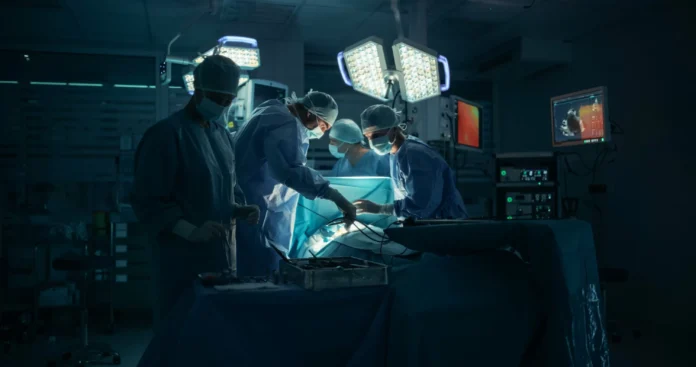In a groundbreaking and historic medical achievement, a team of researchers in China have successfully performed the first ever transplant of a pig’s liver into a human recipient. This groundbreaking study, conducted by scientists at the Fourth Military Medical University, marks a major milestone in the field of organ transplantation and has the potential to save countless lives in the future.
The study, which was recently published in the medical journal Nature, details the successful transplantation of a pig’s liver into a patient with advanced liver disease. The patient, a 62-year-old man, had been diagnosed with cirrhosis, a condition in which the liver becomes scarred and unable to function properly. Left untreated, cirrhosis can lead to liver failure and ultimately, death.
Liver transplantation is often the only option for patients with advanced liver disease. However, due to a shortage of human donor livers, many patients are unable to receive this life-saving procedure. This is where the breakthrough of using animal organs, specifically pig livers, comes into play.
Pigs are considered to be the most suitable animal for organ transplantation due to their anatomical and physiological similarities to humans. However, previous attempts at transplanting pig organs into humans have failed due to organ rejection and complications caused by the different genetic makeup between the two species.
To overcome this barrier, the team at Fourth Military Medical University used a combination of genetic engineering and immune-suppressing drugs to modify the pig’s liver and prevent organ rejection. This groundbreaking approach proved to be successful, with the patient’s body accepting the new liver without any complications.
The success of this first ever pig-to-human liver transplant is a major breakthrough in the world of medicine. It not only offers hope to patients with advanced liver disease, but it also opens up new possibilities for organ transplantation in the future.
According to the lead researcher, Dr. Zhou Hongwei, this study is just the beginning. “We are very encouraged by the results of this study and we believe that this technique can be further developed to improve the success rate of pig-to-human organ transplants,” he says.
The team at Fourth Military Medical University hopes that this groundbreaking study will pave the way for more pig-to-human organ transplants in the future. With further research and refinement, this technique has the potential to address the critical shortage of human donor organs and save countless lives.
The success of this study is a testament to the dedication and hard work of the researchers involved, and it also highlights the importance of international collaboration in advancing medical science. The team at Fourth Military Medical University worked closely with experts from other countries, including the United States, in order to achieve this remarkable feat.
This groundbreaking achievement also holds great promise for patients with other organ failures, such as kidney or heart disease. If pig-to-human transplants can be successfully performed for other organs, it would revolutionize the field of organ transplantation and provide hope for countless patients in need of life-saving procedures.
The successful pig-to-human liver transplant is a major milestone in the field of medicine and a testament to the endless possibilities of human ingenuity. It offers hope for patients around the world and reaffirms our belief in the power of science to improve and save lives.
In conclusion, the first ever pig-to-human liver transplant carried out by the team at Fourth Military Medical University in China is a remarkable achievement that has the potential to change the landscape of organ transplantation. This groundbreaking study not only offers hope to patients with advanced liver disease, but it also opens up new possibilities for the future of medical science. With further research and development, we can look forward to a world where organ transplantation is no longer limited by the shortage of human donor organs.


